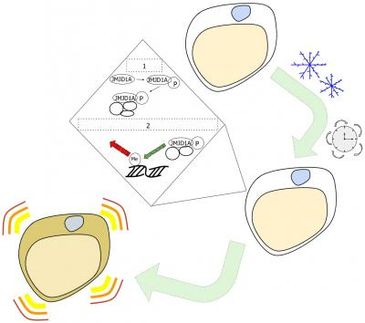Monsanto and Evogene collaborate on yield and stress research
Collaboration focuses on identifying key genes to help farmers produce more, while conserving more
Advertisement
Monsanto Company and Evogene Ltd. have entered into a fiveyear research and development collaboration focused on identifying key plant genes related to yield, environmental stress and fertilizer utilization. The agreement is intended to enhance research efforts to discover and deliver novel, yield-enhancing technologies at a time of increasing demand for grain globally. Under the terms of this collaboration:
- Evogene will provide Monsanto with candidate genes discovered by Evogene’s computational platform that are predicted to improve yield, fertilizer utilization and a plant’s reaction to environmental stress. The genes will be validated in model plants.
- The collaboration will provide Monsanto access to new genes strengthening its entire gene discovery program. Monsanto will receive exclusive licensing rights to such genes in a number of crops, including corn, soybean, canola, and cotton.
- Monsanto will evaluate the licensed genes in its research and development pipeline. Products that emerge from the joint development will be commercialized by Monsanto through its branded and licensed businesses.
- Evogene expects to receive approximately $35 million over the research term of the collaboration in the form of an upfront payment and annual research payments, in consideration for the performance of the research.
- Evogene is also entitled to development milestone and royalty payments based on sales of any resulting products.
Monsanto believes this new collaboration will help support its commitment to double yields in its core crops by 2030 and strengthen its ongoing work with Evogene. In September of 2007, the two companies announced a collaboration to improve nitrogen use efficiency in corn, soybeans, canola and cotton.
In a separate agreement, Monsanto has purchased an $18 million (USD) equity stake in Evogene and has agreed to purchase an additional $12 million in the future, subject to certain Evogene diligence requirements.























































